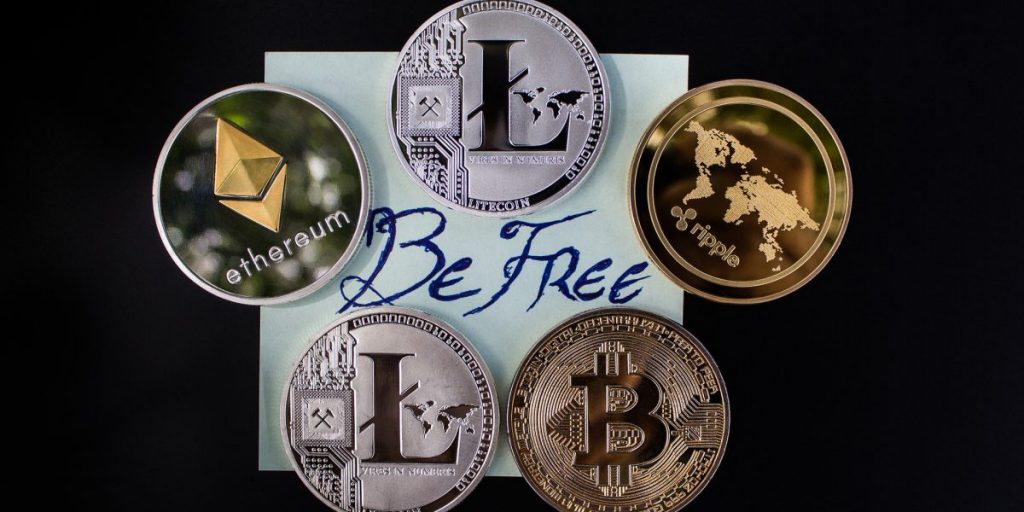- Ukraine tweeted its Bitcoin, Ethereum and USDT wallet addresses yesterday and it has raised $1.4 million in BTC and $4.6 million in ETH as the crypto community stands against Russia.
- The Ukrainian government is also seeking information on crypto wallet addresses belonging to Russian and Belarusian politicians to label them as toxic.
The cryptocurrency community has continued to show its support for besieged Eastern European country Ukraine in its conflict with its neighbor Russia. Yesterday, the Ukrainian government acknowledged the support and posted its Bitcoin, Ether and Tether wallet addresses for the public to donate to its military efforts. At press time, over $6 million has been donated in BTC, ETH, WETH, DAI and other cryptos.
As has been widely reported, Russian President Vladimir Putin has been unwavering in his attack on Ukraine. While some have labeled this as part of a long-term plan to reunite the Soviet Union states, Putin has maintained that he is only responding in self-defense against Ukraine and NATO.
The motive may be arguable, but the suffering that the invasion has caused to Ukrainian residents is stark. Many have had to flee their homes in the capital Kyiv as they fear Russia will attack at any time.
The crypto community has continued to stand against the violence, with several leaders calling for a quick end to the bloodshed. And now, the community is showing its support financially, heeding the call of the Ukrainian government.
Yesterday, February 26, Ukraine’s official Twitter account posted the BTC, ETH and USDT addresses that it’s using to raise money to fund its defense.
Stand with the people of Ukraine. Now accepting cryptocurrency donations. Bitcoin, Ethereum and USDT.
BTC – 357a3So9CbsNfBBgFYACGvxxS6tMaDoa1P
ETH and USDT (ERC-20) – 0x165CD37b4C644C2921454429E7F9358d18A45e14
— Ukraine / Україна (@Ukraine) February 26, 2022
The rallying call was well taken up by the community and since then, millions of dollars have been donated to the cause. Ukraine has now received 36.7 BTC, worth $1.44 million at press time. It has also received 1,688 ETH, worth $4.7 million as well as other ERC-20 tokens such as Wrapped Ether, Yearn Finance and DAI worth a mere $23,105.
When the official Ukraine Twitter account posted the addresses, many crypto owners were suspicious that it could have been a scam. After all, hackers have accessed accounts of famous people and entities including Barack Obama, Elon Musk and Apple, and scammed crypto owners.
However, the authenticity has since then been confirmed. Vice Prime Minister Mykhailo Fedorov confirmed on Twitter that the wallets were genuine and urged the world to stand with his country.
Stand with the people of Ukraine
Now accepting cryptocurrency donations. Ethereum. Bitcoin and Tether (USDTtrc20)BTC — 357a3So9CbsNfBBgFYACGvxxS6tMaDoa1P
ETH — 0x165CD37b4C644C2921454429E7F9358d18A45e14
USDT (trc20) — TEFccmfQ38cZS1DTZVhsxKVDckA8Y6VfCy
— Mykhailo Fedorov (@FedorovMykhailo) February 26, 2022
Yarema Dukh, a communications strategist with the Ukrainian government, who took part in setting up the official Twitter account in 2016, also confirmed the addresses to BuzzFeed. While he said he’s not aware of the exact plans with the money, he said the funds would go to “exterminate as many Russian occupants as possible.”
Vitalik Buterin, the Ethereum founder who is Russian-born, also confirmed the legitimacy of the wallet addresses on Twitter. He had issued a warning that users should wait to confirm the addresses before contributing. However, he urged the crypto community to continue being vigilant when contributing.
Related: Ethereum co-founder expresses disappointment in Russia for its military operation in Ukraine
Getting some confirmations from a couple sources that it’s legit. Deleting my warning for now. But continue to be vigilant, and always be slow and careful when sending irreversible crypto transactions. https://t.co/Odv5pxf3mp
— vitalik.eth (@VitalikButerin) February 26, 2022
At press time, the biggest donation to the fund was 100 ETH (about $270,000), donated by Chain.com CEO Deepak Thapliyal. He told BuzzFeed:
When I realized the Ukrainian government had requested donations in the form of crypto, I felt compelled to do my part to help. Crypto donations are borderless and near instant, so I am hoping that the government there can tap into it as soon as possible to help the people in need.
Ukraine goes after Russian politicians’ crypto wallets
As Ukraine continues to fundraise through crypto, the government is also going after the wallet addresses of its aggressors. Vice Prime Minister Fedorov revealed on Twitter that the government would pay a good reward to any information that could link politicians from Russia and Belarus to their wallet addresses.
This, Fedorov said, was yet another way to pursue war criminals.
Ukrainian crypto community is ready to provide a generous reward for any information about crypto-wallets of Russian and Belarusian politicians and their surroundings. War crimes must be pursued and punished! To share info please contact in Telegram: https://t.co/XHidwUQ8bE.
— Mykhailo Fedorov (@FedorovMykhailo) February 26, 2022
The informants will be paid through funds collected from private donations, rather than from the government, Artem Afian, a Ukrainian lawyer managing the effort told Bloomberg. Afian didn’t reveal how much has been donated so far to the cause, but he said the donations have mainly been in Ether and BTC.
So far, the Ukrainian government has received 500+ tips and it has matched them with a number of top politicians in Russia. It plans on publishing this list in the next few days and will share the list with top exchanges. The ultimate goal is to have these addresses marked as toxic so as to discourage other crypto users from transacting with them.
We want them to understand that they are not welcome in Ukraine or in crypto.
The Ukrainian government didn’t reveal which politicians it has been able to link to crypto transactions yet. However, according to Afian, it’s very unlikely that any of the addresses belong to President Putin who is notoriously anti-technology. The controversial president has made it widely known that he doesn’t even use a smartphone in an era where most aspects of our lives are connected to the Internet.


